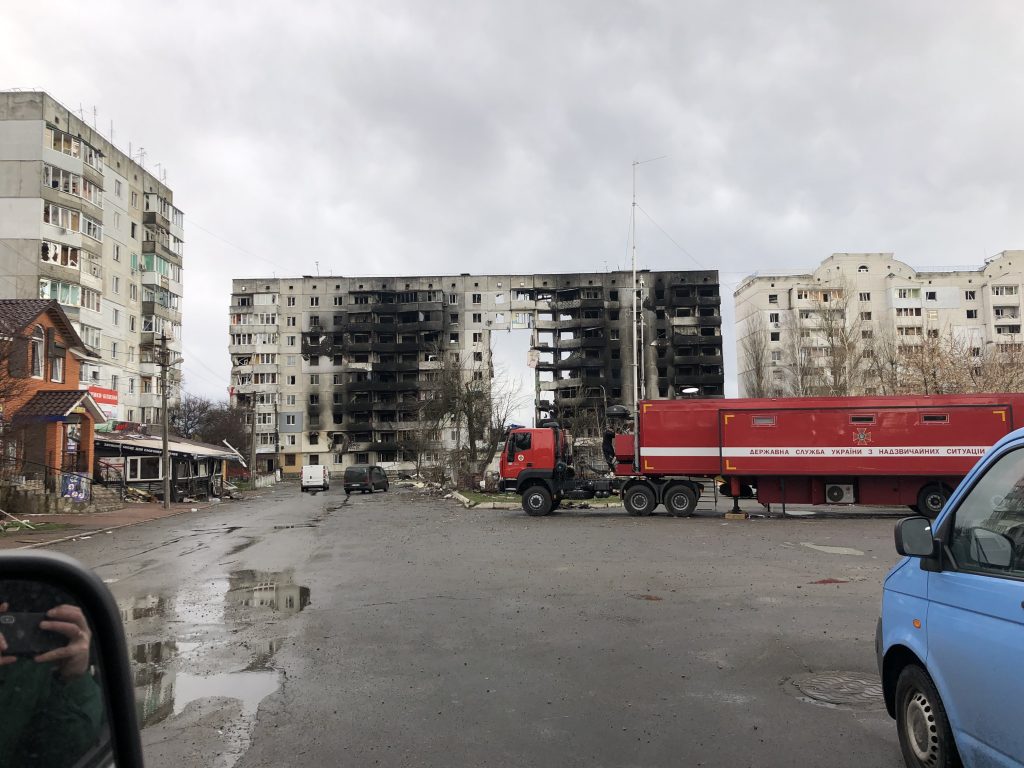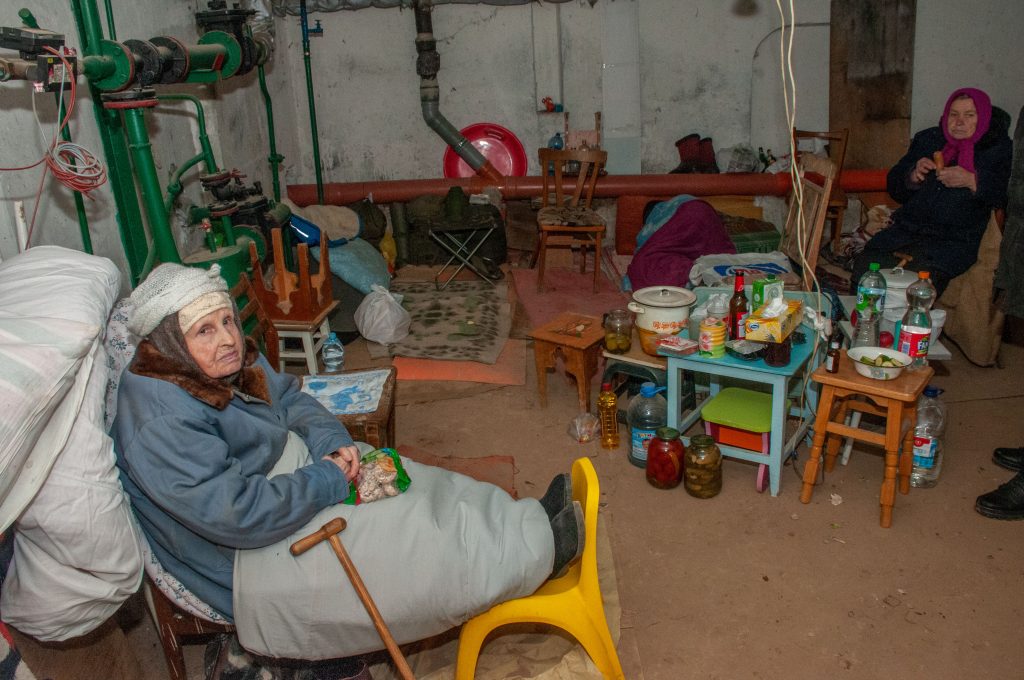Professor Lena Dominelli, Faculty of Social Sciences, University of Stirling

Putin’s War in Ukraine. Words fail to describe the mixture of emotions and thoughts that crowd my mind as I listen to the horrendous stories narrated by social workers in Ukraine. I have been in contact with them since 24 February 2022 when they first contacted me to ask for help. Since then, I have organised the Social Work for Peace Virtual Network (SW4P) to respond to their expressed needs. SW4P is one of a number of social work groups offering support to Ukraine. Fortunately, I have had a generous outpouring of offers of help through it, and I thank the many social workers in the UK and elsewhere who have responded positively. Some have even stressed their willingness to go to Ukraine and contribute from the frontline – courageous beyond measure or foolhardy? It depends on your point of view. But I digress.
My previous experiences of supporting people through disasters have been the so-called ‘natural’ ones – earthquakes, volcanic eruptions, floods, tropical storms, droughts, wildfires, climate change. So, imagine my initial encounter with the social workers in Ukraine who connected with me from their smart phones as they were sheltering in underground bunkers to escape the bombardments that Putin aimed at their country. The only lights that were on came from the screens on their phones. We could hear children crying and people talking softly in the background. It was a weird experience. There are a core group of 6 to 8 of us who listen to their appalling stories every week as atrocity piles upon atrocity because the Ukrainians face new horrors on a daily and minute by minute basis. Some of these are beyond imagination, but they have become everyday occurrences – rape, murder, the destruction of homes, built infrastructures and delicate ecosystems. At the same time, the military ordinances Putin and his troops are discharging are adding significantly to the climate crisis.

The Ukrainians who join our network of solidarity are made up of social work academics, researchers, practitioners and students. They come from throughout Ukraine and include those from Kyiv, Lviv, Kharkiv and Mariupol. Their numbers vary according to how easy it is for them to connect to the internet amidst lack of power. They range from 20 to 40 each week when we have a regularly scheduled two hour time slot to listen to their stories and requests for help that will be of use in supporting them. This is on top of several emails daily. This network of solidarity is based on a bottom-up approach and not led by the external experts in social work (which the core group of us from diverse countries working from our different bases are). As we listen to the courageous interventions by these social workers (not used in the British sense of only those registered to practise, but as those supporting others in situations of adversity) telling us of how they deliver services – food, water, medicines, take people to places of safety among so many other activities while dodging bombardments, sniper fire from Russian troops on the group, potential rape and murder, it strikes me that being a social worker seeking peace and looking for opportunities to support non-violent resolution of conflict, makes no sense in a context in which the main adversary, Putin, consistently fails to engage. Meanwhile, Ukraine as a country is experiencing collective trauma, and its individual inhabitants are experiencing a range of mental health issues associated with loneliness, isolation, and being under siege.
It is also critical that I acknowledge the valour of social workers who have lost their lives trying to help others. Hopefully, one day, their contributions will be celebrated as they have given all that they had to give to help others. Meanwhile, the aggressive assault on Ukraine challenges the basic tenets of social work during disasters in many ways, including the irony that I am offering help from the safety of where I live. Moreover, it brings home the blurring of the boundaries between those fighting to defend their country as soldiers and those seeking to take aid to those in need. The risks social workers in Ukraine face are enormous and similar to those fighting to defend their country with arms, especially as it seems that in this War, aggressive acts against civilians have become the norm. Moreover, the unwillingness of Putin to allow humanitarian corridors to assist people who have been in hiding in whatever shelters they can find has made a mockery of the international world order which was set up to help people caught up in natural and (hu)man-made disasters. The powerlessness of the world to have effective strategies to make one man obey the protocols and laws that he and his country have signed up to, is a major blow to world peace. If the rule of law fails, what else is left? This is a challenge to everyone, not just the social workers, including those in Social Work for Peace who have lobbied for humanitarian aid corridors and dialogue between the opposing parties through United Nations agencies and the NGO community internationally.
More recently, universities in Ukraine have entered the front line by offering refuge in their buildings with basements, and I dread the day when one of these will be targeted by Putin. Here people can find shelter, food, water and medicines as long as these last. This is a reason why donations to the Ukrainian Red Cross and the Ukrainian Ministry of Social Policy that is responsible for social work, on an ongoing basis are essential. While everyone in Ukraine wants this War to end quickly, no one dares predict its end. Moreover, Ukrainian social work academics are determined to see their students graduate as planned this year. Thus, they have asked for the mentoring of social work academics, researchers, practitioners and students, and a sharing of training materials and classes – especially in social work skills and trauma-informed practice, and scholarships for people to study in safer countries. Several universities across the world have responded positively in this regard. I have offered a couple of workshops and mentoring which takes place in my spare time. (Thanks to my family for sparing me some of their time to do this). Thus, despite the challenges of this situation, there is much that all of us can offer to support our colleagues fighting for their lives and country. Let us hope that we can all respond to these calls for help in supportive ways.
